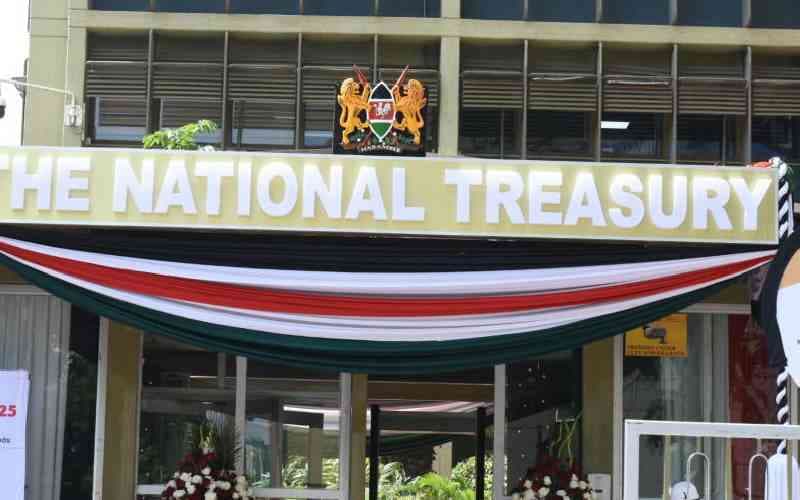We're loading the full news article for you. This includes the article content, images, author information, and related articles.
The administration's plan to create a KSh 200 billion national wealth fund, tied to the sale of state assets, faces sharp criticism from financial experts over transparency, oversight, and its core economic logic for a nation grappling with high public debt.

NAIROBI – The Kenyan government has initiated the process to establish the country's first sovereign wealth fund, publishing the draft Kenya Sovereign Wealth Fund Bill, 2025 for public comment. The proposal, championed by President William Ruto's administration, aims to create a KSh 200 billion fund to manage revenues from natural resources and proceeds from the privatization of state-owned enterprises. However, the plan is already drawing significant scrutiny from financial analysts and civil society, who are raising critical questions about its governance structure, economic rationale, and potential to sideline parliamentary oversight in the management of public assets.
According to the National Treasury, the fund is designed to serve three primary objectives: to shield the economy from revenue shocks, finance strategic infrastructure projects, and build a savings base for future generations once natural resources are depleted. The proposed legislation divides the fund into three distinct arms: a Stabilisation Component, a Strategic Infrastructure Investment Component, and a Future Generation (Urithi) Component, each with a separate account at the Central Bank of Kenya.
A central point of contention is the fund's proposed governance structure. The draft bill establishes a Board, headquartered in Nairobi, to oversee the fund's management. This board will include a chairperson appointed directly by the President, the Principal Secretary of the National Treasury, the Governor of the Central Bank, and four independent members appointed by the Treasury Cabinet Secretary. Critics argue this composition concentrates significant power within the executive branch, potentially compromising the fund's independence. Concerns have been raised that such a structure could be susceptible to political influence, undermining the transparent management of national wealth.
These fears are compounded by Kenya's past struggles with the management of other public funds, where governance gaps have led to mismanagement. Financial experts stress that for the fund to succeed, it requires a robust governance framework with stringent transparency and public visibility to build investor and citizen confidence.
The fund's proposed revenue sources are another area of intense debate. The bill explicitly includes proceeds from the "divestment of government petroleum and mining interests," directly linking the fund to President Ruto's ambitious privatization agenda. The government has already signaled its intent to sell stakes in key state-owned enterprises, including the Kenya Pipeline Company, to raise capital and reduce reliance on debt. While the administration views this as a way to unlock value from underperforming assets, critics question the wisdom of selling long-term strategic assets to seed a fund, especially when the nation's public debt remains high.
Some economists argue that proceeds from privatization should be channeled directly toward paying down Kenya's substantial public debt rather than being placed in a new investment vehicle with its own set of risks. The logic of a debt-laden country establishing a savings fund is being questioned, as sovereign wealth funds are typically associated with countries running budget or trade surpluses, often from commodity exports.
International experience with sovereign wealth funds offers both models for success and cautionary tales. Norway's Government Pension Fund Global, built on oil revenues, is frequently cited as a benchmark for transparency and long-term planning. However, funds in other nations, such as Nigeria and Venezuela, have been plagued by mismanagement, political interference, and a lack of transparency, ultimately failing to serve their intended purpose. The success of Kenya's proposed fund will heavily depend on its ability to implement a legal framework that guarantees independence, accountability, and a clear, long-term investment strategy insulated from short-term political spending pressures.
The National Treasury has invited public feedback on the draft bill until Friday, 7 November 2025, EAT. The ensuing debate in Parliament and among the public will be critical in shaping the final legislation. The core challenge for lawmakers will be to balance the government's ambition to create a long-term savings vehicle with the urgent need for robust oversight mechanisms that protect public assets from the risks of political capture and mismanagement.
Keep the conversation in one place—threads here stay linked to the story and in the forums.
Sign in to start a discussion
Start a conversation about this story and keep it linked here.
Other hot threads
E-sports and Gaming Community in Kenya
Active 9 months ago
The Role of Technology in Modern Agriculture (AgriTech)
Active 9 months ago
Popular Recreational Activities Across Counties
Active 9 months ago
Investing in Youth Sports Development Programs
Active 9 months ago